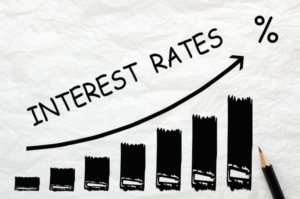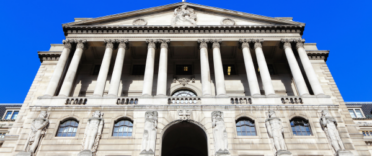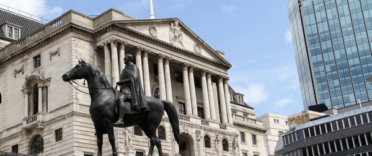
The news doesn't get any better, with markets speculating that interest rates could reach as high as 2.5% by 2023, however, this is largely dependent on whether inflation falls back when energy prices start to fall. To keep on top of what is likely to happen to interest rates, bookmark our article "When will interest rates rise (or in fact be cut)?"
Why have interest rates gone up?
The Consumer Prices Index (CPI) is an index that tracks the price of a range of day-to-day items and the Bank of England targets a figure of around 2%. The rise in energy prices, consumer demand in the wake of the pandemic and recent events in Ukraine have meant that prices are going up at the fastest rate since the 1980s. A way of slowing inflation is to increase interest rates which ultimately discourages borrowing and encourages saving. It is a fine balance however as raising rates too quickly could push the UK into a recession, something that the Bank of England will want to avoid at all costs.
Interest rate rise history - 2021-2022
The Monetary Policy Committee (MPC) are a group of nine members who vote to determine the latest interest rates. The group includes the Governor of the Bank of England, the three Deputy Governors, the Chief Economist and four external members appointed by the Chancellor of the Exchequer. The group meets every 6 weeks and each member casts a vote, the results of which are published along with the minutes at the conclusion of the meeting. In the comparison table below, we have summarised the latest Bank of England rate rises, including the date they were announced.
| Date | Interest rate rise | Previous interest rate | New interest rate | Increase to average monthly mortgage repayments per £100k borrowed* |
| 16th December 2021 | +0.15% | 0.10% | 0.25% | £8 |
| 2nd February 2022 | +0.25% | 0.25% | 0.50% | £13 |
| 17th March 2022 | +0.25% | 0.50% | 0.75% | £13 |
| 5th May 2022 | +0.25% | 0.75% | 1.00% | £13 |
| TOTAL | £47 |
*this assumes a 25-year mortgage term
How will the latest rise in interest rates impact you?
A rise in interest rates will impact both borrowers and savers and so we summarise the likely impact on both below.
Impact of rising interest rates on borrowing
Loans
Most personal loans are agreed based on a fixed rate of interest and so an interest rate rise should not impact your existing loan, however, you should always check the terms and conditions. Anyone looking for a new personal loan is likely to see an increase in interest rates, meaning new loans will be more expensive thanks to the rise in interest rates.
Overdrafts
It is possible that the interest rate you pay on your overdraft will rise, however, you should be given notice before this happens.
Credit Cards
Mortgages
If you are currently on a fixed-rate mortgage deal, then your monthly repayment will not increase.
If you have a tracker or variable-rate mortgage, your monthly payments will go up, however, the time it takes will vary depending on the lender.
A good way to work out how much the interest rate rise will cost you is to use our interest rate rise calculator. To keep things simple, monthly repayments on a 25-year mortgage will rise by £12-£13 for every £100,000 you owe.
If you are worried about further interest rate rises and are either already on your lender's variable rate or coming to the end of your fixed-rate deal, then it may be worth speaking to a mortgage broker about remortgaging. Remember to check how long is left on your current deal and whether there is an early repayment charge. If you don't have a mortgage broker, Habito* is an independent online specialist that offers whole-of-market advice. Additionally, you can search for the cheapest mortgage deals for your circumstances using our mortgage best buy calculator.
Impact of rising interest rates on saving
An increase in the Bank of England base rate should have a positive impact on savings rates, but, improved savings rates often take time to filter into the market. Ultimately, it is up to the individual product provider as to whether they pass on the increase or not. However, the current top six easy access accounts pay an interest rate that is almost 0.6% higher than six months ago following the series of Bank of England base rate hikes.
To view the most competitive savings rates, check out our regularly updated savings best buy tables.
If a link has an * beside it this means that it is an affiliated link. If you go via the link Money to the Masses may receive a small fee which helps keep Money to the Masses free to use. But as you can clearly see this has in no way influenced this independent and balanced review of the product. The following link can be used if you do not wish to help Money to the Masses - Habito





